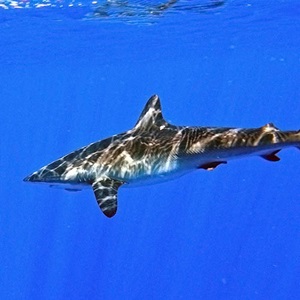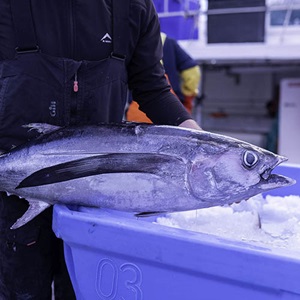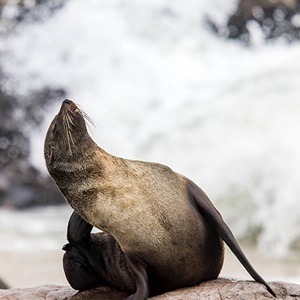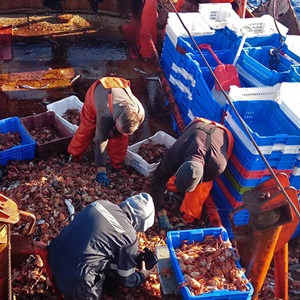By ensuring that shark bycatch estimates are robust, French tropical tuna purse seine fisheries will contribute to shark conservation in two oceans.
- Evaluate the methodology and improve the certainty around estimates of shark bycatch
- Deploy onboard shark enumerators for unbiased monitoring
Start date: June 2025
€42,558.60
Science and Research Fund
Awardee
ORTHONGEL (French Organisation of Tuna Producers)
Fisheries
CFTO & SAPMER Indian Ocean Purse Seine Skipjack fishery; Atlantic Ocean tropical French purse seine fishery
Correcting bias in shark bycatch estimates
Tropical tuna purse seine fisheries interact with several non-target species as part of their fishing operations. Bycatch species can include sharks, which are particularly vulnerable to fishing pressure due to their slow growth and low reproductive rates.
Monitoring, evaluation and data collection of endangered, threatened and protected (ETP) species bycatch is essential for assessing the environmental impacts of fisheries. This monitoring is carried out by independent scientific observers. These
observers are responsible for counting and identifying sharks incidentally caught as bycatch by tuna purse seiners.
Curren observer protocols, developed by the French Institute for Research and Sustainable Development (IRD), demand that
observers must simultaneously monitor several locations on a vessel during fishing trips. Consequently, there is a risk of underestimating the number of sharks handled onboard. A scientific study conducted with Atlantic tuna purse seine fishing vessels
by Forget et al. (2021) confirmed the IRD protocol had risk of estimation bias.
The CFTO & SAPMER Indian Ocean Purse Seine Skipjack fishery, and the Atlantic Ocean Tropical French Purse Seine fishery were certified as sustainable
to the MSC Fisheries Standard in 2021. Given Forget et al’s findings, the fishing companies have been tasked with further assessing the risk of bias and improving data collection methodology on shark bycatch.
To do this, project leaders ORTHONGEL (The French Organisation of Tuna Producers) have been awarded a Science and Research Fund grant from the MSC Ocean Stewardship Fund.
What the project will do
The fund will support the Shark Identification with Onboard Observation (SID20) project. This project will use the existing observation protocol developed by IRD, but in parallel with the deployment of a dedicated shark enumerator. The enumerator
will count and identify sharks on the upper and lower decks separately, to ensure a complete record of shark bycatch is made.
The potentially biased information gathered by the observer will then be compared to that collected by the shark
enumerator. The difference between the observer and enumerator’s counts will identify any estimation bias and highlight any risk in the current IRD assessment method.
The activities will take place in several fishing contexts including
during different types of fishing sets and vessel types. This will allow for a wide range of observations and a more robust assessment of the risk of underestimating the shark count.
The data collected in the project will provide input
for future discussions and inform potential modifications to current IRD observer data collection protocols. The results of the project will be published and presented at meetings of ICCAT and IOTC - the regional fisheries management organisations for
both oceans in which the fisheries operate.
By progressing previous research, the project will have positive impacts for conservation of sharks and further the sustainability goals of tuna purse seine fisheries worldwide.
“The fishing companies (CFTO and SAPMER) are in a continuous search for progress in terms of sustainable fishing. We are delighted to have the support of MSC for the SID2O project.”
ORTHONGEL
Related projects

WCPO Tuna: Shark handling and release techniques

South Atlantic albacore tuna: Stock-wide harvest strategy

Namibia hake: Targeted Acoustic Startle Technology

